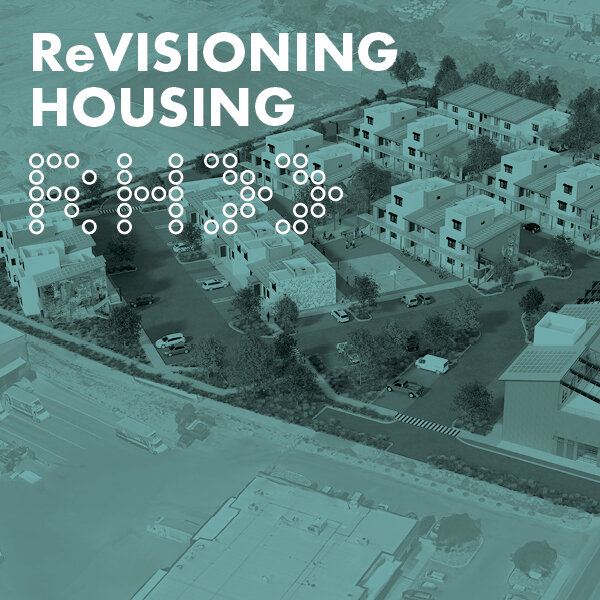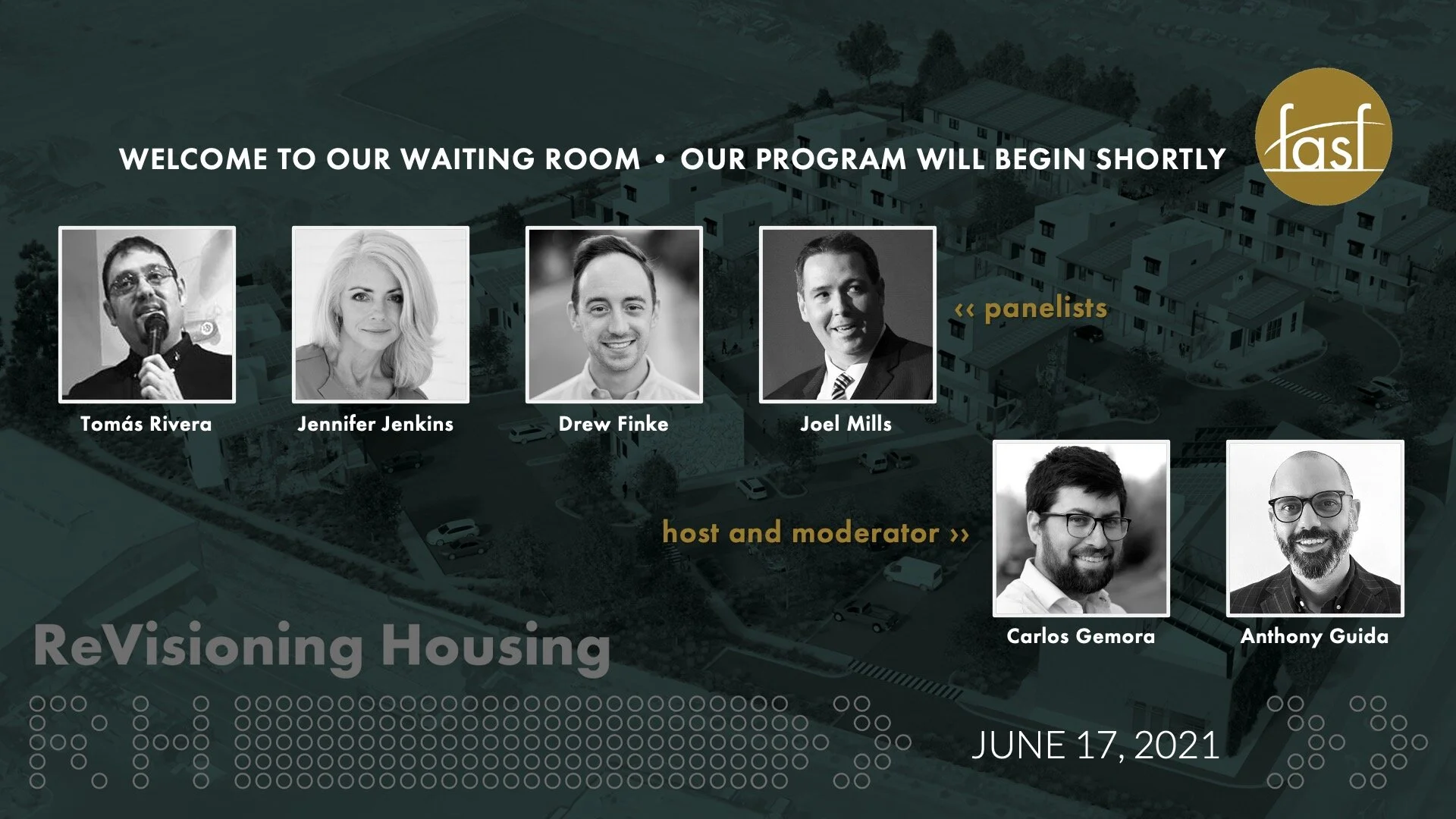ReVisioning Housing
Thursday, June 17, 2021
free and open to the public
AIA MEMBERS EARN 2.0 LU/HSW
APA MEMBERS EARN 2.0 AICP CM credits
ASLA MEMBERS Earn 2.0 HSW LACES Credits
ReVisioning Housing brings together both contentious and collaborative perspectives on achieving equitable and sustainable housing outcomes in Santa Fe. Our diverse set of panelists contextualize the current housing crisis as a social justice issue and explore financial and regulatory development constraints. Speakers illustrate urban design and regulatory solutions and identify the broad community-based and value-oriented strategies essential to changing how we plan, design, discuss, and develop future housing in Santa Fe.
This session is hosted by FASF Board Member and Urban Planner Carlos Gemora, and moderated by FASF President and AOS Architects Director of Sustainability Anthony Guida.
ReVisioning Housing is a part of ReVisioning History series. View this entire series here.
ABOUT REVISIONING HOUSING PANELISTS
Tomás Rivera
executive director, chainbreaker collective
Tomás is the Executive Director of Chainbreaker Collective and has been with the organization since its founding in 2004. Chainbreaker is a membership-led economic and environmental justice organization with over 700 dues-paying members in Santa Fe, NM, the bulk of whom are residents of neighborhoods experiencing disinvestment, and are vulnerable to gentrification and eviction. Chainbreaker organizes front-line community members directly impacted by housing, transit and civil rights issues to make Santa Fe a more equitable city.
resource: Chainbreaker's Evictions in the COVID Era Reports 1 & 2
Jennifer L. Jenkins
Principal, Jenkinsgavin
Jennifer holds a degree in International Business from the University of Texas at Austin. A career in mortgage finance led her to a position as Vice President of a regional construction and development firm, and later, taking the helm of her own land use consulting firm. At JenkinsGavin, she makes key planning, management and entitlement contributions to many high profile real estate developments. She is President of the Board of the Regional Development Corporation and serves on the Board of the Santa Fe Railyard Park Conservancy.
Joel Mills
Senior Director, AIA Center for communities by design
Joel is Senior Director of the American Institute of Architects’ Center for Communities by Design. The Center is a leading provider of pro bono technical assistance for community success. Joel has delivered consultative services to hundreds of communities around the world. His career has been focused on strengthening civic capacity, public processes and institutions. He has served on dozens of working groups, boards, juries, and panels focused on civic discourse and participation, sustainability, and democracy. Joel was a founding Board Member of the International Association for Public Participation’s United States Chapter. He has spoken at numerous international conferences concerning democratic urbanism and the role of democracy in urban success, including serving as the Co-Convener of the Remaking Cities Congress in 2013. Joel is an Academician of the Academy of Urbanism in London, UK. He is the author of numerous articles on the relationship between democracy, civic capacity and community.
Drew Finke
associate, opticos
Drew’s research-based approach to problem solving and attention to detail bring conceptual and graphic clarity to planning, urban design, and architecture projects at Opticos Design in Berkeley, California where he is an Associate. Drawing on his architectural education, he seeks to sustain and strengthen local culture through thoughtful, community-driven design and policies that reinforce a community’s unique sense of place. Since joining Opticos in 2013, Drew has applied this sensibility to impactful projects in a broad range of places, from an award-winning place-based comprehensive plan for the City of Memphis, Tennessee, to a contextually-sensitive form-based code for rural Kaua'i County in Hawai'i, and a conceptual site plan for an Affordable Missing Middle Housing neighborhood in Mammoth Lakes, California.






